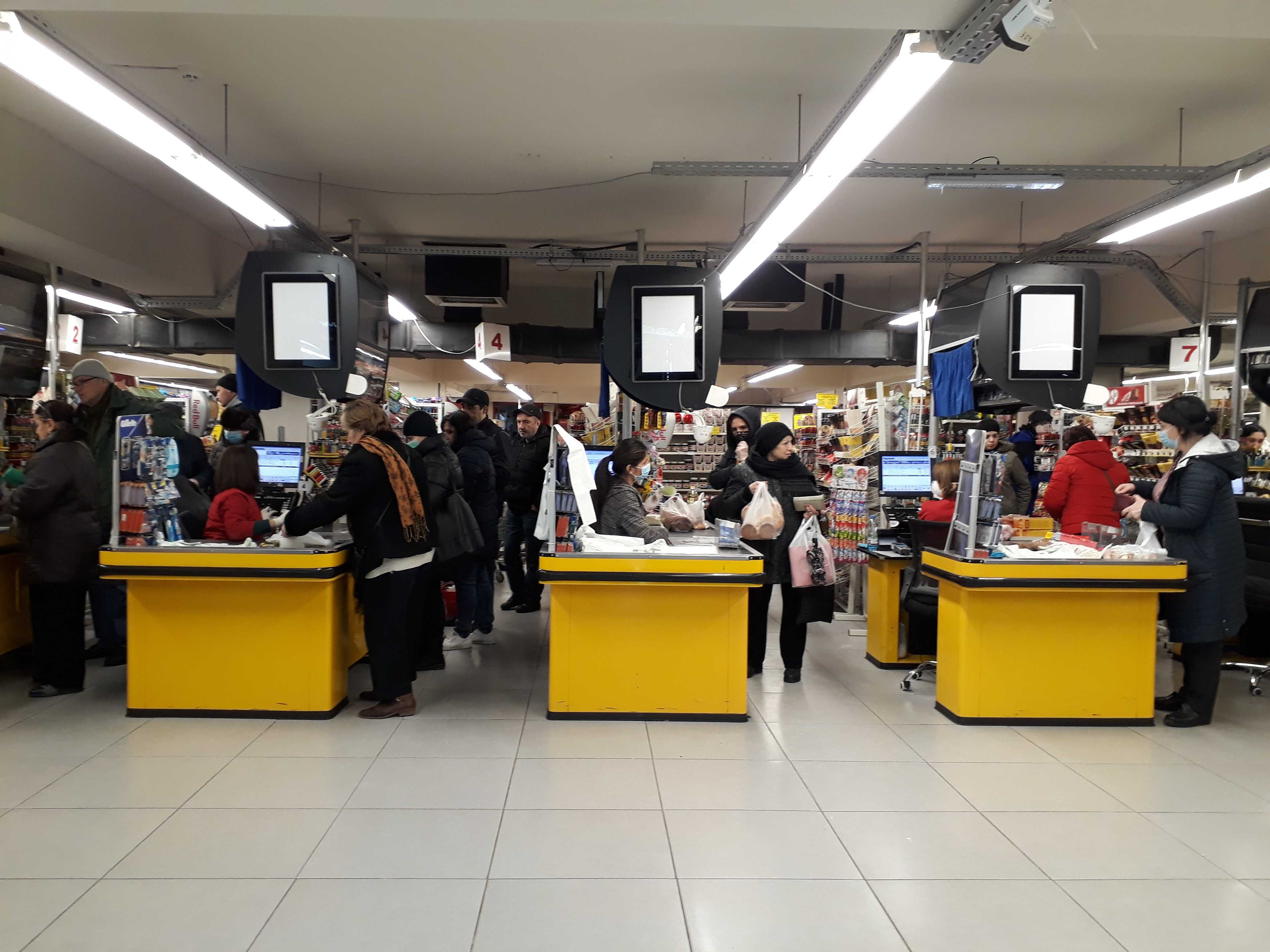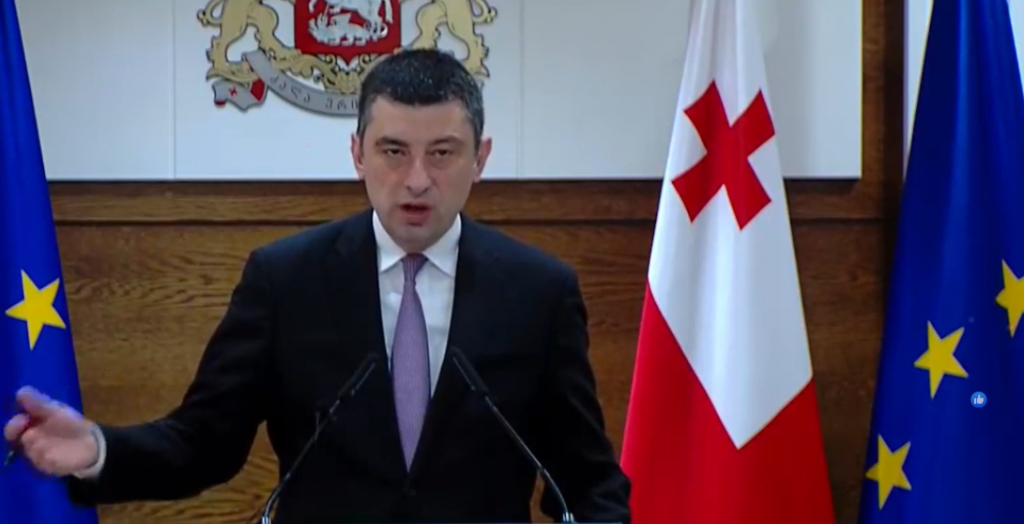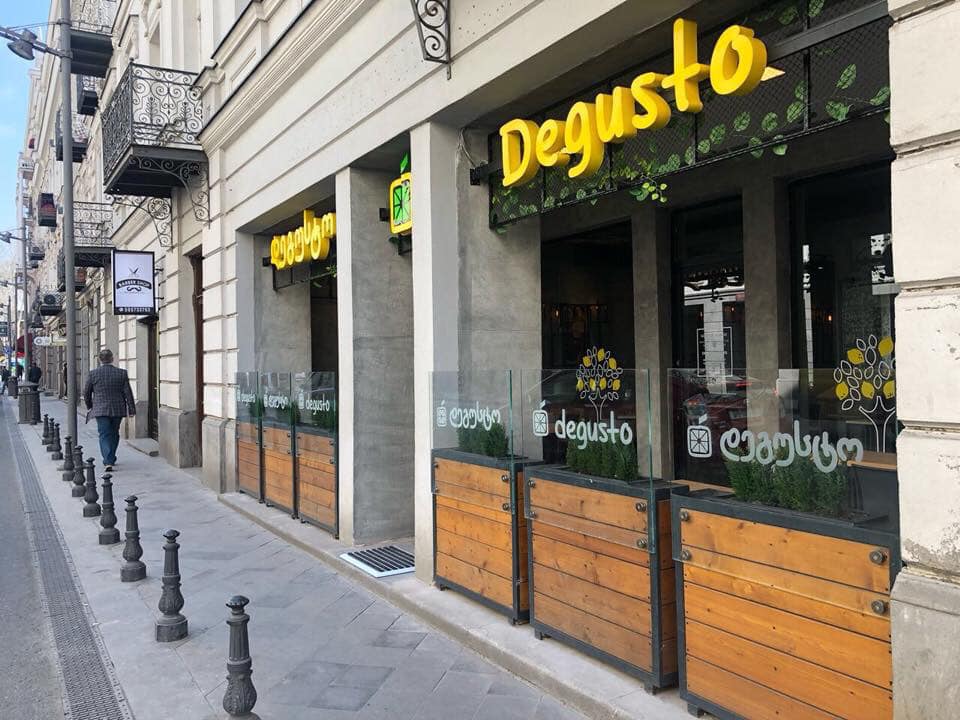
The Georgian government has pledged a ₾1 billion ($324 million) stimulus to help mitigate the coronavirus crisis. Meanwhile, winter resorts were closed, shopping malls emptied, and restaurants were advised to temporarily switch to home delivery or drive-through services to reduce risks of infection.
On 14 March, the Georgian government presented a scheme against the negative impact on business by the coronavirus pandemic.
According to the report of TBC Capital, a corporate advisory arm of TBC Bank, hotels they surveyed had 50-60% fewer reservations in March-April compared to the previous year.
As for restaurants, the report said that the amount of total transactions has seen a sharp decline, however, was less severe compared to the losses sustained by hotels.
The group anticipated that tourism, aviation, and cafes and restaurants, would be the sectors worst affected by the Covid-19 outbreak.
The report proposed two scenarios of how the situation could affect Georgian GDP.

The first is a ‘baseline scenario’, in which the virus still progresses in other countries, but overall, a gradual recovery takes place over two to three months — an estimate made on the Chinese experience. Under these conditions, the report predicts Georgia’s GDP growth to be 1.7% – 2.5% in 2020.
The second is a ‘stress scenario’ , under which recovery from the impact of the virus takes place only at the end of the third fiscal quarter. Under such conditions, Georgia’s economy enters a recession and GDP growth turns positive only in the fourth quarter.
Georgian authorities respond
The scheme worked out by the Georgian Government includes restructuring loans and income tax for businesses for several months.
Companies involved in touristic activities, such as hotels, restaurants, tourist agencies, and transportation companies, will have their debts rescheduled for four months. Around 2,000 hotels across Georgia will have interest on their loans paid for by the government in part for the next six months, according to the scheme.
Georgian citizens have also been allowed to voluntarily postpone loan payments to banks for three months.
In a bid to counter the devaluation of the national currency, the National Bank of Georgia announced it will sell $40 million in reserves on 19 March.
The official exchange rate of $1 to ₾3.1804 as of 18 March.

Prime Minister Giorgi Gakharia said he had ordered the creation of a mechanism which would prevent an increase of prices of seven main food products: rice, pasta, oil, sugar, flour, wheat, milk powder and other items produced using milk powder.
The Minister of Agriculture Levan Davitashvili said if prices skyrocket, legal mechanisms will be used to lower them.
The Georgian government announced on 18 March that they are working on an online platform to coordinate activities by businesses aimed at alleviating effects of the pandemic.
Georgian Business Ombudsman Mikheil Daushvili, who will supervise the platform, said that over 30 enterprises had already volunteered to get involved and help by providing products, including medicine, and financial resources to target groups.
Labour rights
On 17 March it was revealed that Degusto, a chain of cafeteria restaurants, cut 20% of their employee’s wages and ordered some of them to go on unpaid leave.
Mariam Kalandadze, a former employee of Degusto wrote on Facebook she expected ₾225 ($73) transaction on her account as the second half of her salary, but only received ₾180 ($59).

‘They have even said that they will be re-hired after several months. I doubt this promise will be fulfilled. I don’t know what we should do. I don’t even know who should protect us’, Kalandadze wrote. ‘ The Georgian labour code is a sham.’
Giorgi Levidze, one of the owners of Degusto, told Publika that these were only temporary measures.
‘What should we have done? Pay nothing to 50 people and pay 100% to 100? These financial interventions were triggered by the current situation. We temporarily cut [wages by] 20% for all employees in order to pay at least 80%’, Levidze said.
He added that because of the nature of their institution, their turnover has fallen by 80% and they have even had to close some of their locations.
On 18 March, Georgian Trade Union Confederation (GTUC) said that cuts of salaries or working hours, forced unpaid vacations, and requests for those in self-isolation to show up at work started happening throughout the country on a daily basis.
They have promised workers in similar situations that they will represent them in labour disputes free of charge.







